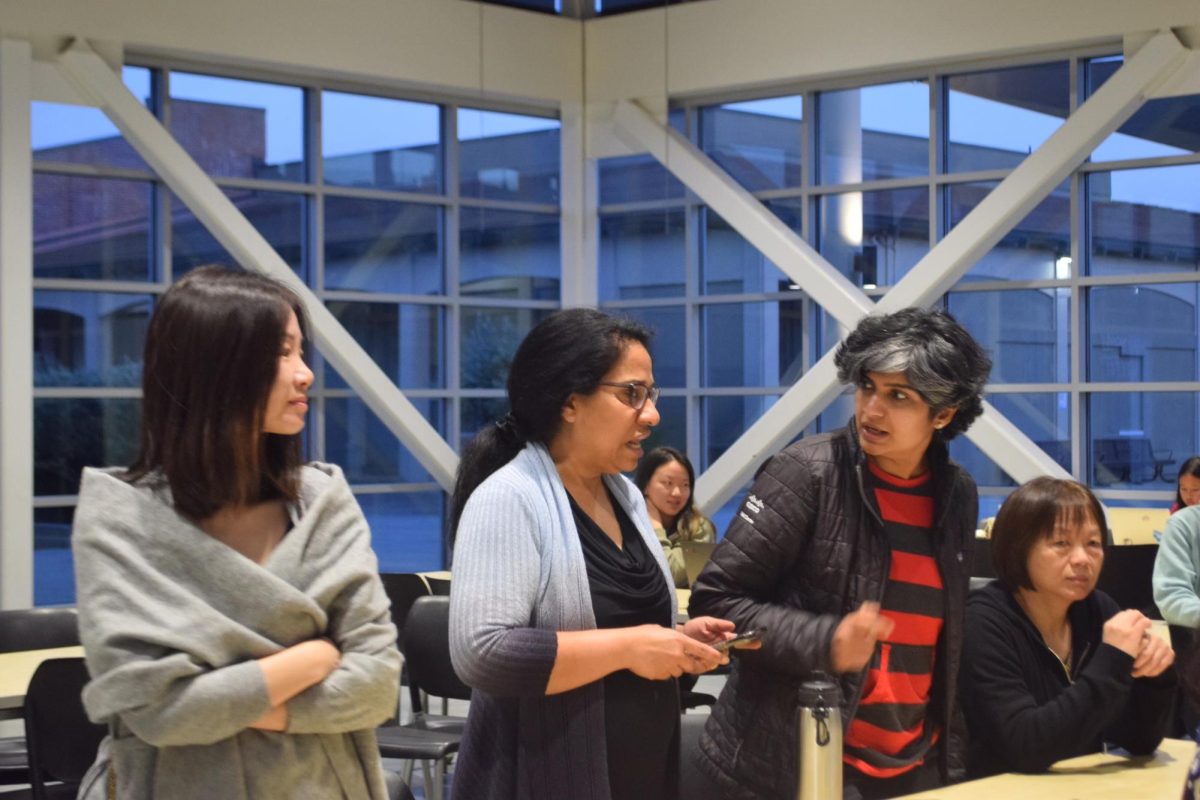 Every other Thursday, Legislative Council members congregate in room P1 during tutorial to discuss issues that affect the student body, such as increasing tutorial time or resolving traffic bottlenecks. Members comprise of Leadership class students and student representatives who volunteer from every fifth period class on campus, and council meetings are led by Senior ASB Vice-President Vanshika Desai, who acts as a link between Leadership and Legislative Council.
Every other Thursday, Legislative Council members congregate in room P1 during tutorial to discuss issues that affect the student body, such as increasing tutorial time or resolving traffic bottlenecks. Members comprise of Leadership class students and student representatives who volunteer from every fifth period class on campus, and council meetings are led by Senior ASB Vice-President Vanshika Desai, who acts as a link between Leadership and Legislative Council.
At Legislative Council meetings, members converse about campus improvement, student clubs and other subjects related to student activities and wellbeing. Leadership will also make announcements regarding upcoming events or send out surveys soliciting feedback through Legislative Council, in an effort to disperse information and grasp the student body’s attitudes and opinions.
Senior ASB Secretary Maddie Park explains the purpose of Legislative Council and its relationship to Leadership below.
El Estoque: What do people often not know about Legislative Council?
Senior Maddie Park: I don’t know what people don’t really know about Legislative Council. It’s a good question to ask. I feel like a lot of people don’t really know that it’s a thing, or that it does anything, but I would love for people to realize that they don’t have to just feel like “Oh I dislike this,” or “Oh I think this could change,” but feel like they don’t have a voice for that. Even though as the student body’s elected representatives, we’re elected to represent people’s opinions, we don’t know every single opinion in the school. I would love to, but realistically, I don’t. [So] getting that kind of feedback is really important.
EE: What is the difference between Leadership Council and Legislative Council?
MP: We mix them up all the time. Leadership Council is basically where we pass motions for events or student activities… We compile everything into an agenda of motions that the whole Leadership class votes on to pass or deny. In that way we get a sense of what’s going on in the school, and we filter through the types of events.
Legislative Council is more like a discussion [about] how we can improve things. It’s not so motion-based [compared to Leadership Council] — it’s pass or deny in the sense of clubs and that kind of business in the beginning of the year. But [there’s] a lot of communication about what are problems in the school, and what do we want to focus our attention on.
EE: What is the relationship between Leadership and Legislative Council?
MP: A lot of times Leadership will propose topics they want to bring forth to the student body. And our stuff will go through Legislative Council so that information can come back. It’s kind of a going-out and coming-back communication.
EE: What do you do when a student representative does not show up?
MP: I don’t think we can force anybody to be there. The hope is that if you volunteer, [you] will go [to Legislative Council]. I think we get enough participation where it’s still the opinions of the people we’re representing, and still a pretty good read of the school.
EE: If first semester largely focuses on passing new clubs, what does Legislative Council concentrate on second semester?
MP: They still do a lot. I think recently they were talking about the parking situation, because one of the things people have been mentioning is how it gets clogged up [from] traffic on the way to school. People don’t think that really affects them, especially if they don’t drive, [but] it does affect you… That’s just one example of how we can point out a problem even though we think it’s just an existing condition that we have to deal with, [but] it could potentially be something that we try solving or improving.
EE: Do you have any last thoughts?
MP: I hope that Legislative Council can reach its potential to be an effective way of fostering communication between the student body and Leadership and administration, and just working towards building a better environment for students and everyone on campus.







